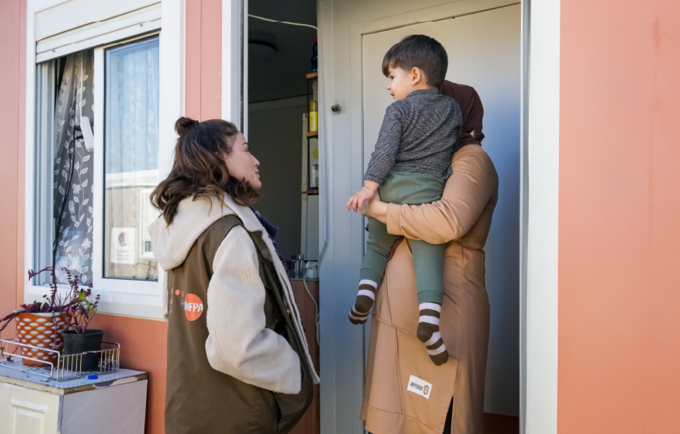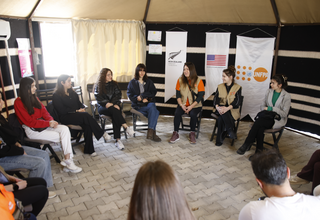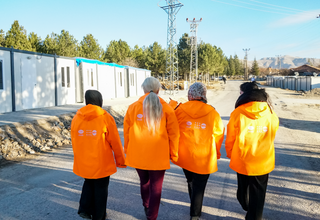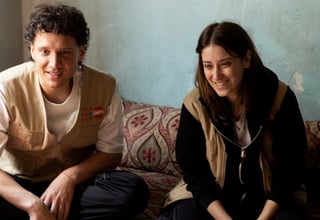The earthquakes that hit Türkiye in 2023 deeply affected almost 9.1 million people’s lives. With the financial support of the Government of Ireland, women and girls affected by the earthquake were supported at the Women and Girls Safe Space (WGSS) in Kahramanmaraş. In the centers in collaboration with the KAMER Foundation, sexual and reproductive health (SRH) services, including family planning counseling and pregnancy follow-up, and gender-based violence (GBV) prevention and intervention services, including psychosocial support, are provided to women and girls. Let's get to know some of those women better.
Yasemin Çam
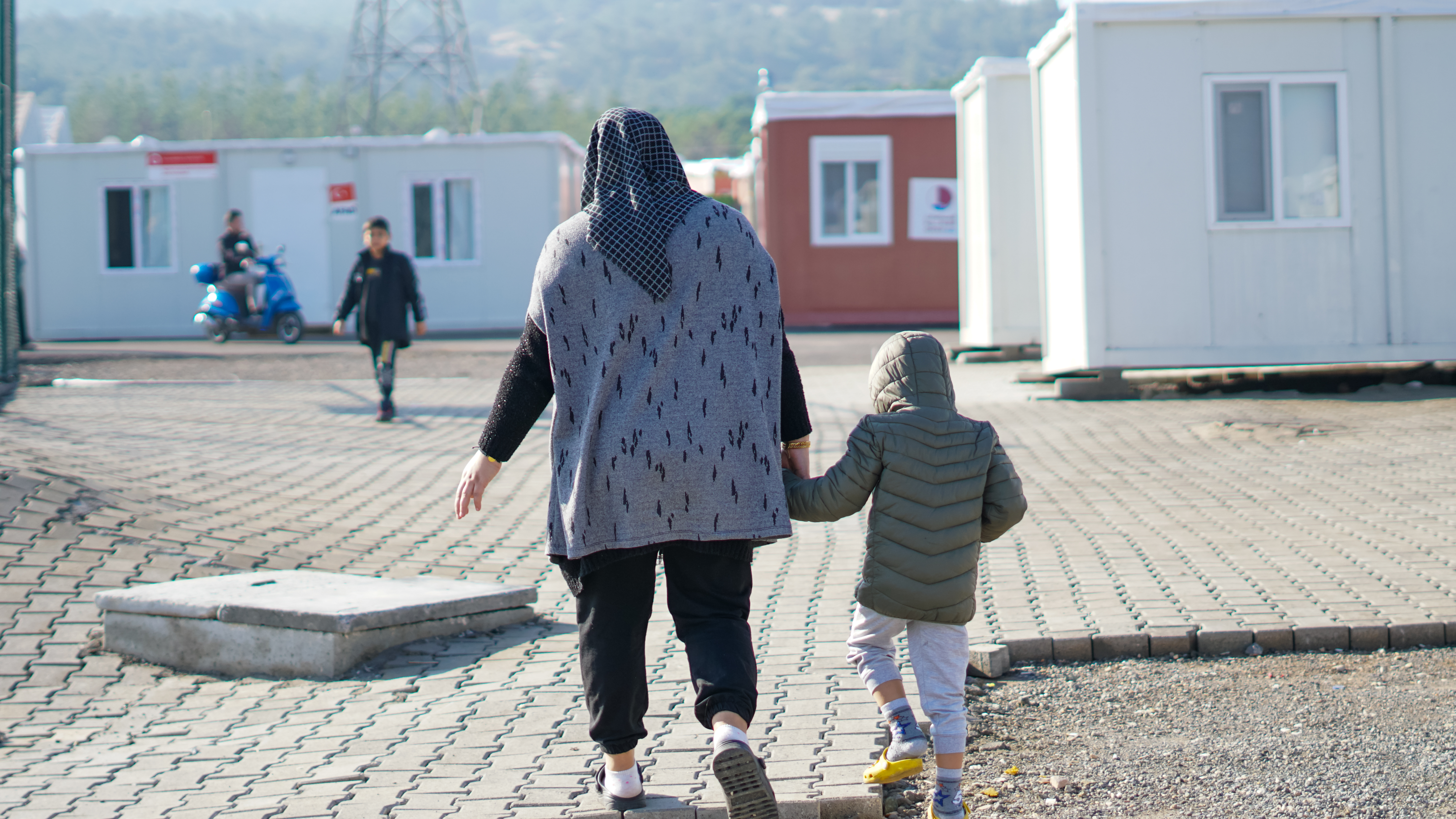
Yasemin is 25 years old and has a 5-year-old son. She will have her second child in 1 month. They lived in a car and then in a tent, without being able to take anything from their home which was heavily damaged in the earthquake. They struggled with many issues such as weather conditions, hygiene needs, child care. "I don't even want to remember those days anymore, it was very difficult both in terms of hygiene and psychologically," Yasemin summarizes the first days after the earthquake. Although living conditions are better in the container city where they are currently staying, their concerns about the care of their newborn baby continue.
Yasemin explains that she first came to Kahramanmaraş WGSS, which she met thanks to her neighbors, for GBV training. Yasemin, who receives support from our center with a maternity kit and pregnancy follow-up, also participates in various trainings of the center. “While we are having difficulty making ends meet, the services this center provides us are essential. I gained information about both pregnancy and women's rights. “The training I received from here changed my perspective on myself.” says. Yasemin says that she can now stand more firmly with the support of the center.
Latife Musa
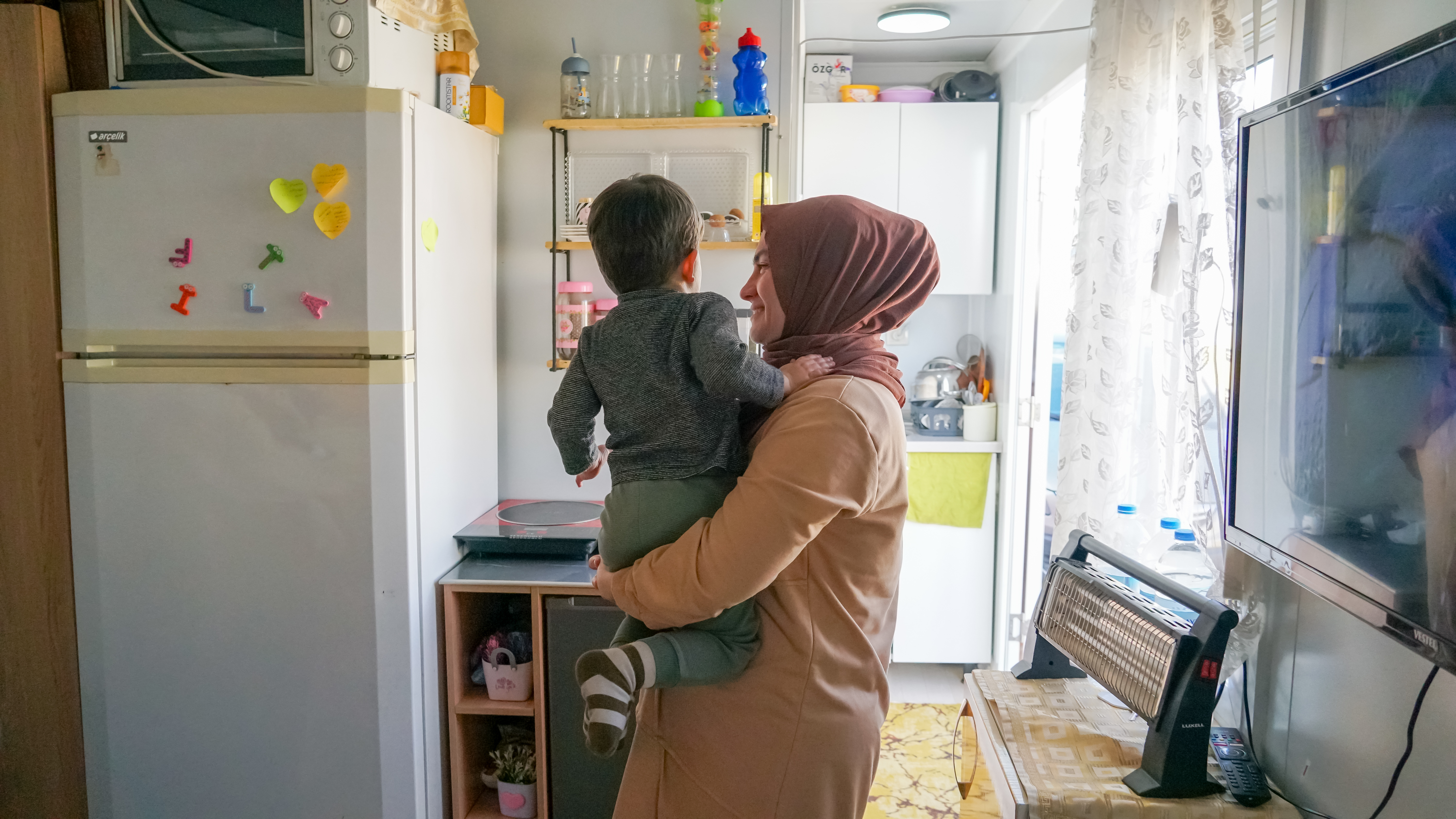
30-year-old Latife has a 2-year-old son. He came to Türkiye from his hometown, Latakia, Syria, in 2012 with his family. They escaped from an already damaged house in Kahramanmaraş, where they had been living since their arrival, without taking any of their belongings after the earthquake. After staying in the tent for 1 month, they moved to the container city and met Kahramanmaraş WGSS there.
Expressing her gratitude while explaining the work of the center, Latife explains that she was able to forget the pain of the earthquake to an extent, thanks to awareness activities, training and assistance. Latife says, "Thanks to you, we can ask anything we are curious about, we can socialize, our awareness increases and we can meet our vital needs." She says that the existence of a center that she can consult at any time is a source of confidence and empowerment for both herself and her children.
Tuba Özdemir - Social Services Expert
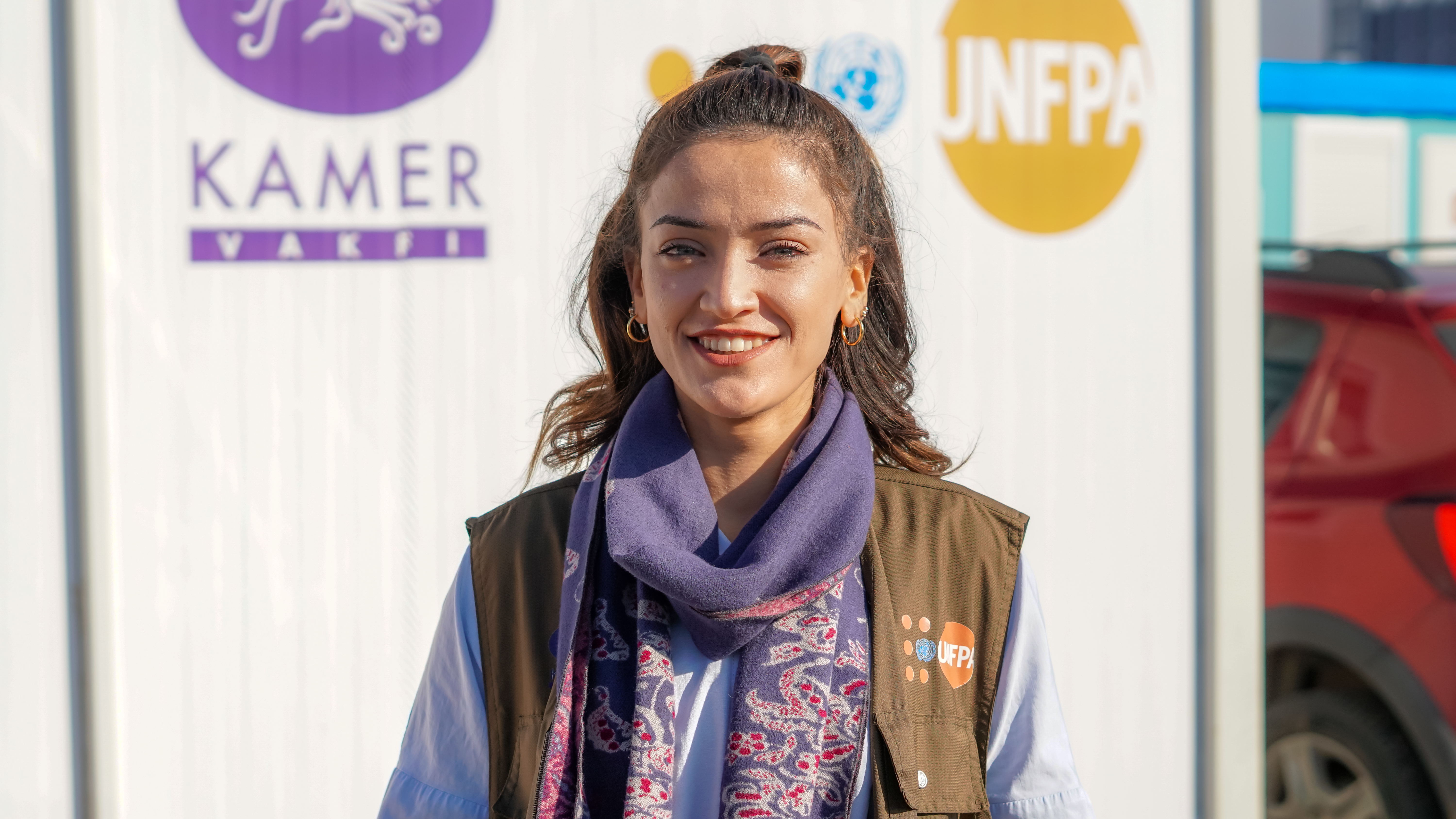
Tuba Özdemir is 24 years old and a Social Services Expert. Tuba, who was also affected by the earthquake and lost her loved ones, was caught in the earthquake in Islahiye, Gaziantep. She had a hard time. “Among all the difficult conditions, hygiene was one of the most difficult needs to achieve,” she says, and adds, “We stayed in two cars alternately for 15-20 days, and then we stayed in a tent. Even though our house was intact, we were afraid to enter the house due to the ongoing shaking."
Tuba, who did everything she could to bring aid to those in need with her father while in Gaziantep, came to Kahramanmaraş in June to lend another helping hand. She now works at the WGSS which is run in partnership with UNFPA and KAMER. “As I benefit people here, I feel as if there is someone in Gaziantep who also benefits my family, and this makes me feel good.” Tuba, who carries out visits and conducts awareness sessions to identify women and girls in need in the container city where it is located and the districts in the region, guides the women and girls she comes into contact with to psychosocial support, protection, sexual and reproductive health services according to their needs.
She says being able to help women and girls first-hand after going through difficult times was an empowering opportunity for her as well.
Kübra Gülnar
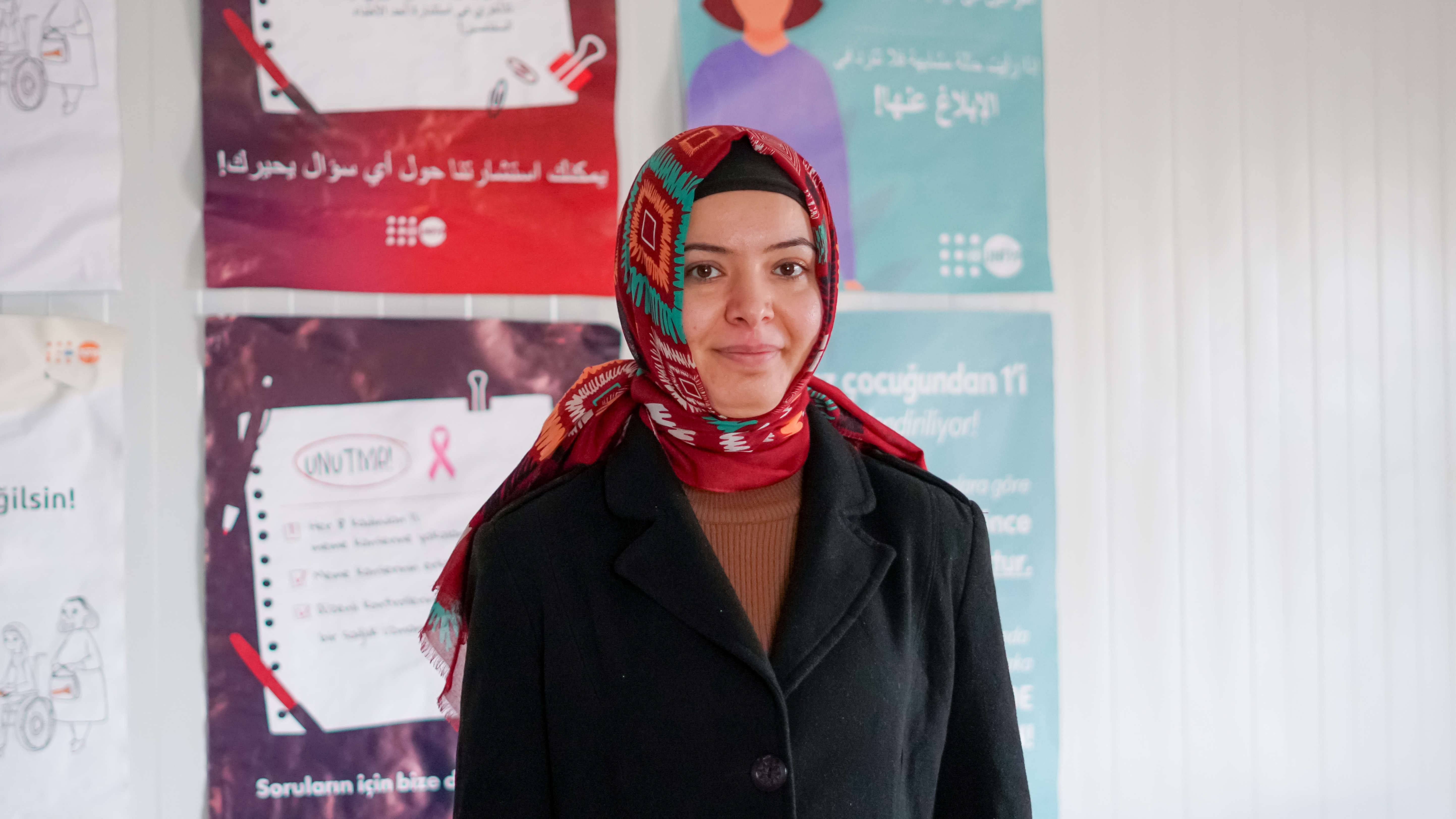
32-year-old Kübra has a 13-year-old son and an 8-year-old daughter. She had been living alone with her children for 2 years until the earthquake, and before that, she was subjected to violence due to the influence of her husband's substance addiction. "My life was very difficult, I couldn't even be happy to be alive during the earthquake," she says, remembering those days. On top of these difficulties, Kübra, whose house was destroyed in the earthquake, stayed in a tent for the first 3 months, but due to hygiene conditions, she had to live in a crowded house with her husband and her husband's family again. Stating that she also experienced economic difficulties, Kübra states that she also observed serious psychological effects on her children during this period.
Kübra explains that she has become much stronger with the psychological support she received from Kahramanmaraş WGSS. “My life has completely changed with the support I received from here. I feel much better psychologically. “My children also continue their schooling and are in better shape now.” Kübra, who also benefits from the dignity kit in addition to psychological support, says that she feels stronger now and visits WGSS much more often. Likewise, her husband is getting better with the support he receives, they have a better life now.
Fatma El Ahmed
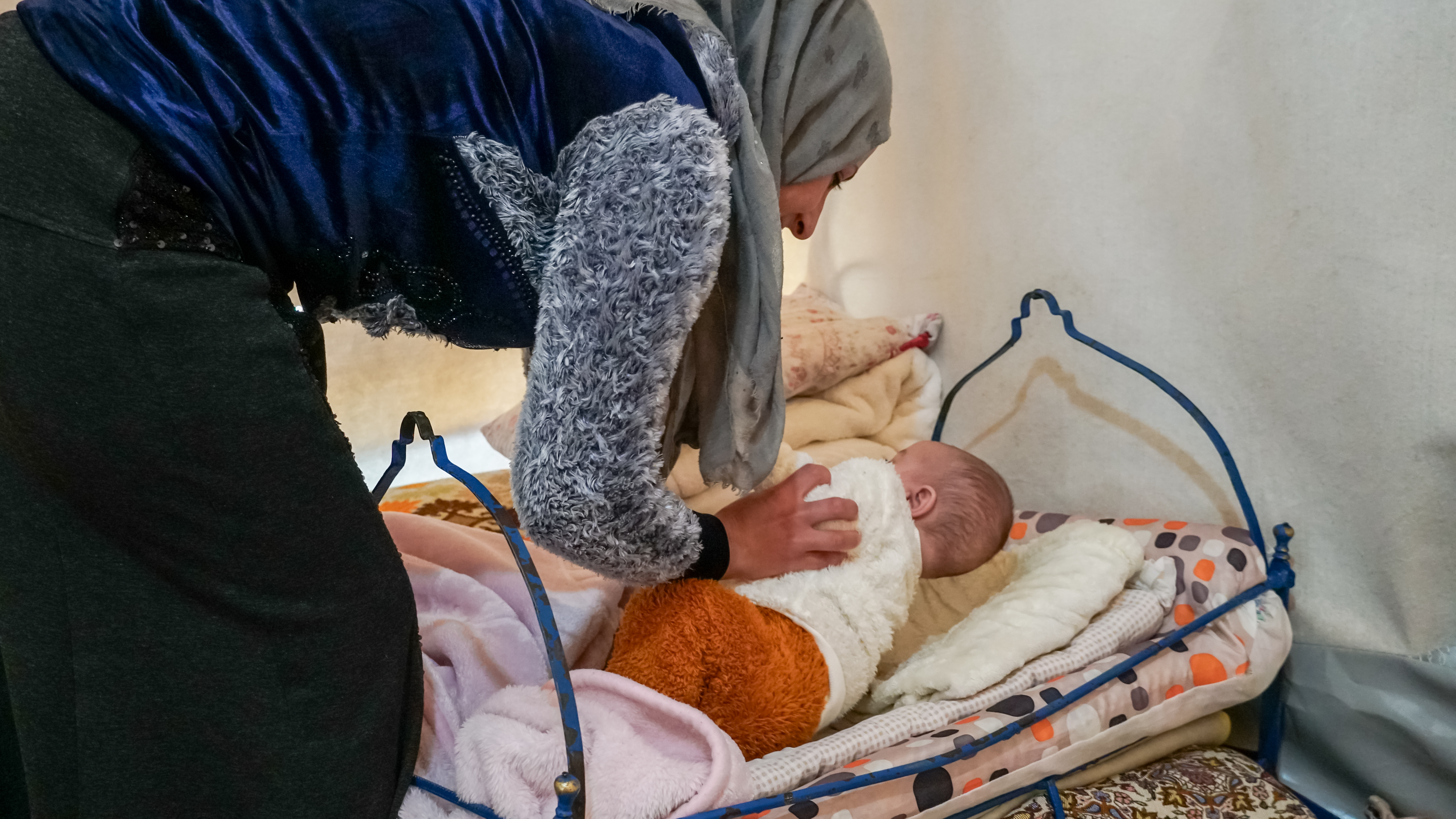
Fatma is 25 years old and has 2 sons and a daughter. When she came from Aleppo, Syria in 2014, she settled in Kahramanmaraş with his husband, whom she married at the age of 16. Fatma, who was pregnant when the earthquake occurred, escaped with her two children and her husband from their destroyed home at the last minute without taking anything with them. "Because of the cold, especially my children always got sick, they were always crying, and this process was very difficult because I was pregnant," she says, explaining the problems they experienced in the single tent they stayed in with 4 families. She explains that living in a tent became even more difficult after a cesarean section. The WGSS team knocked on Fatma's door during their visits to determine needs in the region in one of their field visits.
Fatma received dignity and maternity kits and received care support for herself and her baby from the WGSS’ nurse. “There is a health center nearby, but we can only go there in emergencies. The children's hospital is far away. That's why the support I receive from you is very important to me,” she says. The only thing she wants now is a better future and better housing conditions for his children.
Each woman's story highlights the meaning of resilience, solidarity and healing together. They are getting better and stronger thanks to the devoted efforts of our humanitarian workers, the majority of whom are women affected by the earthquake, who took part in this struggle.
UNFPA, with the support of its partners, has been supporting women and girls in the field since the first day of the earthquake. With the financial support of the Government of Ireland and the cooperation of the KAMER Foundation, we continue to provide sexual and reproductive health and gender-based violence prevention and response services through WGSS in Kahramanmaraş.
